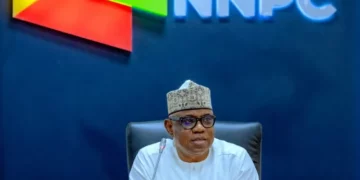Minister of Women Affairs, Hon. Imaan Sulaiman-Ibrahim, has warned that violence against children is not only a moral failure but a direct threat to national security and collective prosperity, urging African leaders to prioritise comprehensive legal reform and coordinated policy action to end child abuse across the continent.
Speaking at the Regional Meeting of Pathfinding Countries on Ending Violence Against Children in Africa, at the Presidential Villa , Abuja ,the Minister described child abuse in all its forms—physical, emotional, sexual, and structural—as a betrayal of humanity that undermines Africa’s growth.
“Africa is rising in innovation and entrepreneurship, but our progress will remain incomplete if we do not protect the most vulnerable among us,” Sulaiman-Ibrahim said. “Every act of violence against a child is a violation of their dignity and a threat to our national security.”
She called for the urgent strengthening of legal and policy frameworks across African nations to align with global conventions such as the UN Convention on the Rights of the Child and the African Charter on the Rights and Welfare of the Child.
“Laws must be enforced without exception, even in cases involving powerful perpetrators or harmful traditional practices,” she stressed.
Representing the Federal Republic of Nigeria, Sulaiman-Ibrahim highlighted the country’s strategic roadmap developed by the Ministry of Women Affairs, which aligns with Nigeria Agenda 2050 and the National Development Plan 2021–2025. The blueprint prioritises gender equality, women’s empowerment, child protection, and inclusive development.
The Minister also reaffirmed Nigeria’s commitment to global frameworks, including the Sustainable Development Goals (SDGs), the Convention on the Elimination of All Forms of Discrimination Against Women (CEDAW), the UN Convention on the Rights of the Child, the AU Maputo Protocol, and the AU Charter on the Rights and Welfare of the Child, among others.
She drew attention to the challenges children face in conflict-affected and rural areas, where displacement, poverty, and post-COVID shocks have weakened protective systems.
“Children in these regions are at greater risk of exploitation, recruitment by armed groups, and gender-based violence,” she said, noting that her Ministry is responding with trauma-informed care, psychosocial support, and access to education.
Underscoring the need for a gender-responsive approach, she said: “Violence against women and children are interlinked. Where one exists, the other often follows. Women—especially mothers—are the first line of defense, but they cannot protect their children if they themselves are unsafe or unsupported.”
The minister proposed a three-point agenda to end violence: strengthening legal frameworks, scaling integrated services in health, education, justice, and social protection, and investing in preventive measures such as parenting programs, school safety campaigns, and community sensitisation.











